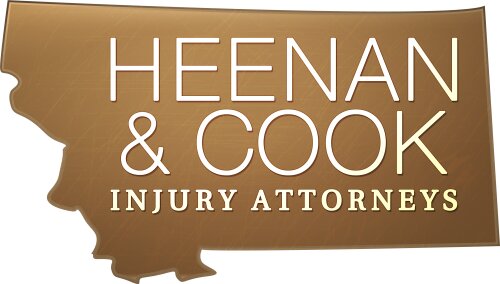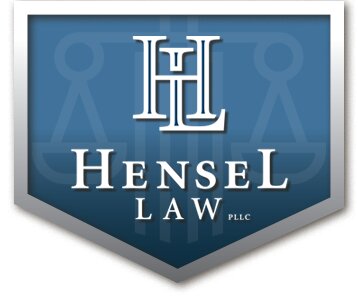Best Truck Accident Lawyers in Billings
Share your needs with us, get contacted by law firms.
Free. Takes 2 min.
List of the best lawyers in Billings, United States
1. About Truck Accident Law in Billings, United States
Truck accident law in Billings sits at the intersection of federal regulations and Montana state law. Large commercial vehicles are governed by federal safety standards that apply nationwide, while Montana handles civil responsibility, fault, and damages through state statutes. In practice, a truck crash claim in Billings may involve multiple defendants, including the trucking company, the driver, the shipper, and sometimes other responsible parties. A local attorney can help you sort through evidence, identify liable parties, and pursue the right legal remedies in Yellowstone County courts.
Billings residents should expect complex insurance interactions and a range of potential damages, from medical bills to lost wages and long-term impairment. Court filings, discovery motions, and expert testimony are common elements of truck crash cases. Because federal rules govern how trucks are operated and maintained, many claims hinge on compliance with those federal standards as well as Montana civil liability rules.
For anyone navigating a truck crash in Billings, the combination of federal safety requirements and state tort law means working with a lawyer who understands both arenas. An attorney can help you preserve evidence quickly, assess fault, and negotiate with insurers or pursue litigation if needed. Local court practices in Yellowstone County can also influence timelines and outcomes, so local counsel is especially valuable.
According to federal safety regulations, most commercial drivers must use electronic logs to document hours of service and vehicle operation.
Key sources of authority include federal agencies that regulate trucking and the Montana state system that governs civil claims. The following sections summarize the main local considerations and how they affect a Billings truck crash case. For the latest official guidance, consult the linked government resources below.
Important sources: Federal Motor Carrier Safety Administration (FMCSA) and Montana state resources provide the rules of engagement for trucking operations and for pursuing legal claims in Montana courts. See FMCSA and Montana’s pages linked in this guide for official details.
2. Why You May Need a Lawyer
Here are specific, real-world scenarios in Billings where hiring a truck accident attorney can make a meaningful difference. Each example reflects situations that commonly arise in the local area and require legal expertise.
- A commercial truck rear-ends you on I-90 near Billings, causing serious injuries, and the company tries to limit liability by blaming driver fatigue. A lawyer can obtain driving logs, maintenance records, and event data recorder information to establish fault.
- The trucking firm denies responsibility after a crash, claiming the other vehicle caused the collision. An attorney can assemble a full liability picture, including independent driver qualifications and maintenance history, to counter such defenses.
- You sustained long-term injuries that require future medical care or rehabilitation. A lawyer can calculate full economic damages and noneconomic losses, including future treatments and impairment, and negotiate with insurers for fair compensation.
- Evidence from the crash scene may be lost or altered if not acted on quickly. An attorney can issue preservation notices, secure witnesses, and demand essential records before they are destroyed or altered.
- You shared fault with the truck driver under Montana comparative fault rules. A lawyer can explain how fault percentages affect damages and help you pursue a fair settlement or trial verdict.
- Multiple liable parties exist, such as the carrier, shipper, and maintenance contractors. A lawyer can identify all responsible entities and pursue a comprehensive claim against each party’s liability coverage.
These scenarios illustrate why a lawyer with expertise in Montana trucking cases can add value from day one, not only in negotiating with insurers but also in guiding you through evidence collection, expert selection, and trial preparation if needed.
3. Local Laws Overview
The legal framework for truck accidents in Billings combines federal trucking regulations with Montana state law. Below are two to three specific laws or regulatory frameworks you should know, including notable recent changes where applicable.
Federal Motor Carrier Safety Regulations (FMCSRs)
FMCSRs govern the operation of commercial trucks and the behavior of drivers and carriers. Key portions commonly involved in truck crash cases include parts addressing driver qualifications, vehicle maintenance, and hours of service. In practice, these rules shape liability by highlighting whether a carrier or driver complied with safety requirements.
Examples of relevant parts: 49 CFR Parts 383 (Commercial Driver’s License qualifications), 392 (Rules of Road - driving and driving behavior), 395 (Hours of Service), and 396 (Inspection, repair, and maintenance). These rules are enforced nationwide by the Federal Motor Carrier Safety Administration (FMCSA).
Recent note: The Federal Motor Carrier Safety Administration administers an electronic logging device (ELD) mandate to document hours of service for most interstate truck drivers. The ELD rule began to be enforced in late 2017 and early 2018, with phased compliance obligations for carriers.
“Electronic logging devices are required for most commercial drivers to document hours of service.”
For official details, see the FMCSA regulations page and the hours of service guidance on the FMCSA site.
Montana Motor Vehicle and Traffic Law
Montana regulates civilian traffic and liability for crashes through the Montana Code Annotated (MCA) within Title 61 for motor vehicles and related topics. In truck crash cases, Montana law governs how fault is assigned and how damages are recovered in state courts. Local practice in Billings follows Montana procedural rules and the state’s approach to civil damages.
Specific Montana sources provide the framework for how commercial vehicle operations interact with state tort claims, including the interplay between state fault rules and insurance coverage. For official state guidance, consult the Montana Legislature’s website and Montana Department of Transportation updates.
Montana Comparative Negligence Principles
Montana follows a comparative negligence system in which damages may be reduced by the plaintiff’s degree of fault. This framework matters in truck crash cases where both the driver and the carrier may bear responsibility, potentially affecting recovery. The comparative fault framework is set out in Montana law and interpreted by Montana courts.
Consult the Montana Legislature site for the exact statutory language and how courts apply fault percentages in personal injury actions arising from vehicle crashes.
4. Frequently Asked Questions
What is a truck accident claim in Billings?
A truck accident claim is a legal demand for compensation after a crash involving a commercial truck. It can involve the truck driver, the trucking company, and others who may bear liability for property damage or injuries.
How do I start a claim after a truck crash in Billings?
Begin by seeking medical care, gathering basic crash details, and contacting a Billings trucking attorney. Your lawyer will assess liability, gather records, and determine the best filing strategy.
When should I hire a truck accident attorney?
Hire an attorney as soon as practicable after the crash. Early counsel helps preserve evidence, manage communications with insurers, and plan the case timeline.
Where can I file a truck accident claim in Billings?
Most personal injury claims in Montana are filed in Yellowstone County District Court. Your lawyer can file the complaint, coordinate service, and manage discovery there.
Why do I need a lawyer if the other driver is insured?
Insurance adjusters may offer low settlements or misinterpret liability. An attorney ensures you pursue full damages and protects your rights throughout the process.
Can I handle a truck accident claim myself?
While you can, doing so risks missing key records, miscalculating damages, and accepting unfair offers. A lawyer helps avoid avoidable mistakes and improves outcomes.
Should I accept the first settlement offer?
No. Early settlements often undervalue future medical needs and lost earnings. A lawyer can analyze settlement terms and negotiate for fair compensation.
Do I need a medical evaluation after the crash?
Yes. A first medical evaluation documents injuries, helps treatment planning, and provides essential evidence linking your injuries to the crash.
Is there a time limit to file a Montana truck accident case?
Montana imposes statutes of limitations for personal injury claims. Consult a Montana attorney promptly to determine the exact deadline for your case.
How long do truck accident cases take in Billings?
Cases vary widely. Some settle within months, while others go to trial after a year or more, depending on complexity, evidence, and court schedules.
What evidence should I preserve after a crash?
Preserve police reports, medical records, photographs of damage, maintenance logs, driver logs, and any communications with insurers or operators.
What is the difference between liability and damages in a truck crash?
Liability concerns who is responsible for the crash. Damages refer to the financial impact, including medical bills, wages, and compensation for pain and suffering.
5. Additional Resources
- Federal Motor Carrier Safety Administration (FMCSA) - Federal agency regulating commercial trucking; provides safety regulations, compliance guidance, and enforcement information. Website: https://www.fmcsa.dot.gov/
- Montana Department of Transportation (MDT) - State agency overseeing trucking safety, vehicle inspections, permits, and enforcement within Montana. Website: https://www.mdt.mt.gov/
- National Highway Traffic Safety Administration (NHTSA) - National safety agency offering statistics, road safety guidance, and crash data relevant to truck accidents. Website: https://www.nhtsa.gov/
For Montana-specific statutes and procedural rules, you can also explore the Montana Legislature’s official site for the Montana Code Annotated (MCA) at leg.mt.gov. Official guidance from these sources helps ensure you understand both federal requirements and state procedures.
6. Next Steps
- Document the crash scene and injuries as soon as it is safe to do so. Take photos, collect witness contact information, and obtain the police report if available. Timeline: within 24-72 hours.
- Seek medical evaluation promptly, even if you think injuries are minor. Early treatment supports your health and strengthens your claim. Timeline: within 0-2 weeks.
- Contact a Billings truck accident attorney who handles Montana cases. Schedule a free consultation to discuss the facts and potential strategies. Timeline: within 1-2 weeks after the crash.
- Gather essential records for your attorney: insurance correspondence, medical bills, employment records, and maintenance logs for the truck involved. Timeline: ongoing, with initial review within 2-4 weeks.
- Allow your attorney to handle communications with insurers and the other parties. Do not sign releases or settlement demands before consulting counsel. Timeline: ongoing through the claim process.
- Understand your statute of limitations and deadline to file; your attorney will confirm the exact timeline for your case. Timeline: dependent on the claim type and Montana law.
- Proceed with settlement negotiations or, if needed, prepare for a civil court case in Yellowstone County District Court. Timeline: settlements may take months to over a year; trials can extend longer depending on complexity.
Lawzana helps you find the best lawyers and law firms in Billings through a curated and pre-screened list of qualified legal professionals. Our platform offers rankings and detailed profiles of attorneys and law firms, allowing you to compare based on practice areas, including Truck Accident, experience, and client feedback.
Each profile includes a description of the firm's areas of practice, client reviews, team members and partners, year of establishment, spoken languages, office locations, contact information, social media presence, and any published articles or resources. Most firms on our platform speak English and are experienced in both local and international legal matters.
Get a quote from top-rated law firms in Billings, United States — quickly, securely, and without unnecessary hassle.
Disclaimer:
The information provided on this page is for general informational purposes only and does not constitute legal advice. While we strive to ensure the accuracy and relevance of the content, legal information may change over time, and interpretations of the law can vary. You should always consult with a qualified legal professional for advice specific to your situation.
We disclaim all liability for actions taken or not taken based on the content of this page. If you believe any information is incorrect or outdated, please contact us, and we will review and update it where appropriate.










